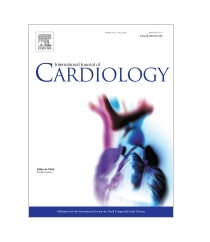Sanchis-Gomar F1, Alis R2, Rampinini E3, Bosio A3, Romagnoli M4, Lombardi G5, Lippi G6
1, Research Institute of the Hospital 12 de Octubre (“i+12”), Madrid, Spain;2, Research Institute “Dr. Viña Giner”, Molecular and Mitochondrial Medicine, Catholic University of Valencia San Vicente Mártir, Valencia, Spain; School of Medicine, Catholic University of Valencia San Vicente Mártir, Valencia, Spain;3, Human Performance Laboratory, MAPEI Sport Research Center, Italy;4, Research Institute of the Hospital 12 de Octubre (“i+12”), Madrid, Spain; Department of Physical Education and Sports, University of Valencia, Valencia, Spain;5, Laboratory of Experimental Biochemistry & Molecular Biology, I.R.C.C.S. Istituto Ortopedico Galeazzi, Milano, Italy;6, Laboratory of Clinical Chemistry and Hematology, Academic Hospital of Parma, Parma, Italy.

Olah et al. have recently shown adverse effects of exhaustive exercise on the heart in a murine model. The authors showed elevated plasma levels of cardiac troponin T and creatinine kinase after exhaustive exercise, compared to controls, along with elevated nitro-oxidative stress, myocardium enhanced apoptotic signaling and dysregulation of the matrix metalloproteinase system [1]. In this line, Legaz-Arrese et al. have investigated the influence of a mild endurance training program (14 weeks running, 3–4 days/week, 120–240 min/week, 65–85% of maximum heart rate) on exercise-induced increase of high-sensitivity cardiac troponin T (hs-cTnT) in humans, showing that both baseline and post-exercise hs-cTnT values after training were higher compared with pre-training and the response of the control group (P = 0.008).
Int J Cardiol. 2015 Oct 15. PMID: 26142978 DOI: 10.1016/j.ijcard.2015.06.104